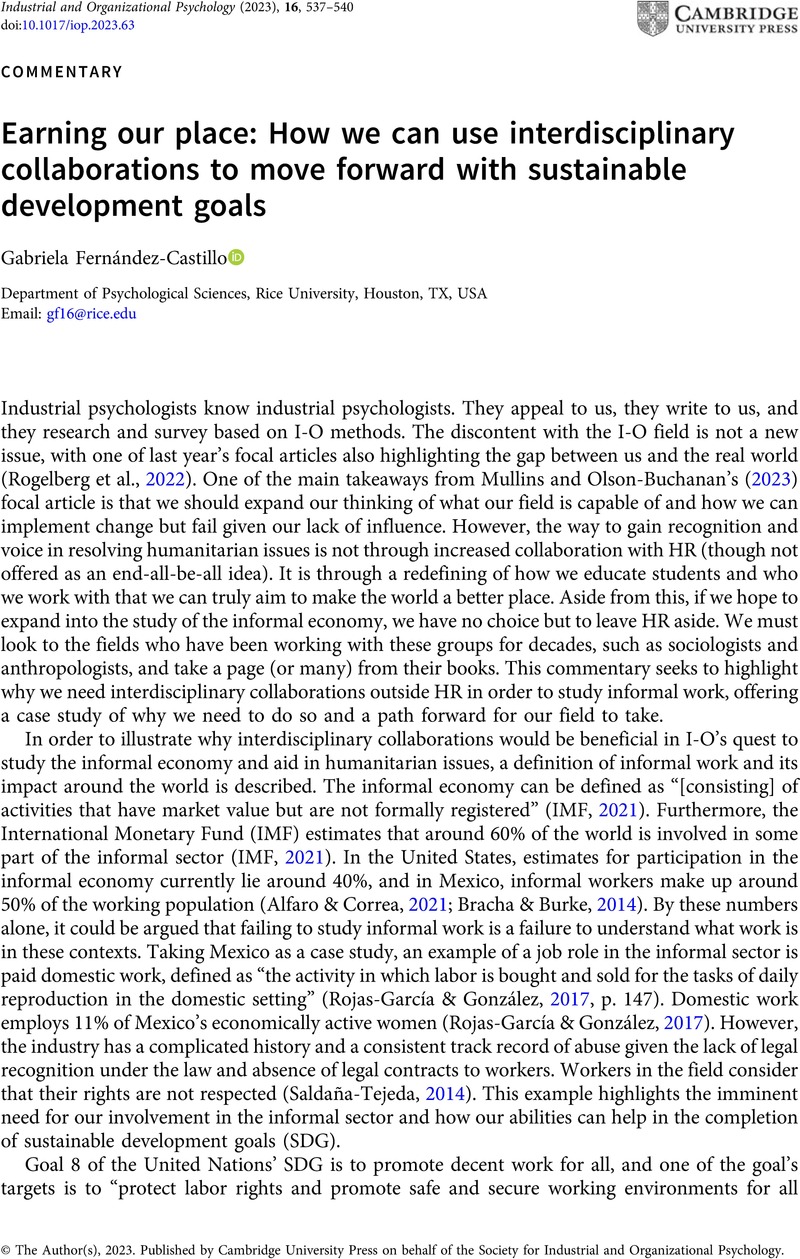Crossref Citations
This article has been cited by the following publications. This list is generated based on data provided by Crossref.
Salas, Eduardo
Linhardt, Rylee
and
Fernández Castillo, Gabriela
2024.
The Science (and Practice) of Teamwork: A Commentary on Forty Years of Progress….
Small Group Research,



